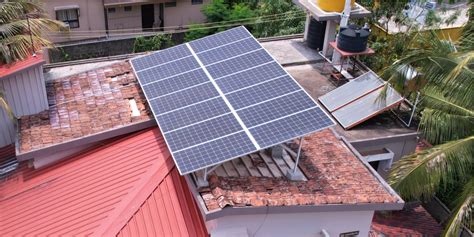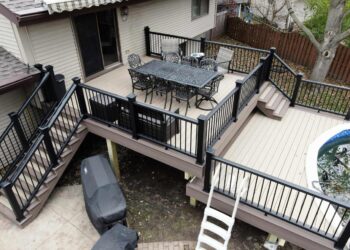Exploring the world of solar roofing installation near me, this introduction offers readers a fascinating glimpse into the benefits and considerations of switching to solar energy, with detailed insights and practical advice.
The subsequent paragraph will delve deeper into the various aspects of solar roofing installation, shedding light on its impact and advantages.
Importance of Solar Roofing Installation

Solar roofing installation is essential for several reasons, including the following benefits:
Reduced Energy Bills
- Solar roofing systems harness the power of the sun to generate electricity, thereby reducing dependence on traditional energy sources.
- By utilizing solar energy, homeowners can significantly lower their monthly electricity bills and even earn credits for excess energy produced.
Environmental Impact
- Traditional roofing materials contribute to environmental degradation through resource extraction, manufacturing processes, and waste generation.
- In contrast, solar roofing helps reduce carbon emissions and reliance on fossil fuels, making it a more sustainable and eco-friendly option.
- Additionally, solar panels can extend the lifespan of the roof by providing protection from the elements, reducing the need for frequent repairs or replacements.
Types of Solar Roofing Systems
Solar roofing systems come in various types, each offering unique features and benefits for homeowners looking to harness solar energy. These systems are designed to seamlessly integrate solar technology into the roof of a building, providing both energy efficiency and aesthetic appeal.
Integrated Solar Tiles
Integrated solar tiles are designed to blend in with traditional roofing materials, such as asphalt shingles or clay tiles. These tiles have solar cells embedded within them, allowing them to generate electricity while maintaining the overall look of the roof.
Integrated solar tiles are a popular choice for homeowners who value both functionality and design.
Solar Shingles
Solar shingles are similar to integrated solar tiles but are designed to mimic the appearance of traditional roofing shingles more closely. These shingles are made up of individual solar panels that are installed in a shingle-like pattern on the roof.
Solar shingles are a versatile option for homeowners who want a sleek and modern look for their solar roofing system.
Efficiency and Durability
Both integrated solar tiles and solar shingles are known for their high efficiency in converting sunlight into electricity. These systems are durable and can withstand harsh weather conditions, providing long-term energy savings for homeowners. Additionally, the seamless integration of solar technology into the roof minimizes the risk of damage or leaks, ensuring the longevity of the system.
Factors to Consider Before Installing Solar Roofing
Before making the decision to install solar roofing, homeowners should carefully consider a few key factors to ensure it is the right choice for their home.
Initial Cost vs. Long-term Savings
One important factor to consider is the initial cost of installing solar panels versus the long-term savings they can provide. While the upfront cost may seem high, it is essential to calculate the potential savings on energy bills over the lifespan of the solar roofing system.
It is crucial to weigh the initial investment against the long-term financial benefits of reduced energy costs.
Determining Roof Suitability
Not all roofs are suitable for solar panel installation, so it is important to assess whether your roof meets the necessary criteria before proceeding with the installation.
- Roof Orientation: A south-facing roof with minimal shading is ideal for maximizing solar energy production.
- Roof Condition: The roof should be in good condition with a stable structure to support the weight of the solar panels.
- Roof Age: Consider the age of your roof, as it may need to be replaced before installing solar panels to avoid complications in the future.
Finding the Right Solar Roofing Installation Company
When it comes to choosing a solar roofing installation company, it is crucial to do thorough research and select a reputable and experienced company to ensure a successful installation process. Certifications and experience play a key role in determining the reliability and quality of the service provided
.
To help you make an informed decision, here are some tips and questions to consider when selecting a solar roofing installer.
Research and Selection Process
- Check for certifications: Look for certifications such as NABCEP (North American Board of Certified Energy Practitioners) which ensure that the installer has the necessary skills and knowledge to install solar systems.
- Experience matters: Choose a company with a proven track record of successful solar roofing installations. Experience can ensure that the installer is familiar with the best practices and potential challenges.
- Read reviews and testimonials: Look for reviews from previous customers to get an idea of the company's reputation and customer satisfaction levels. Positive reviews can indicate a reliable service.
Questions to Ask Potential Installers
Before hiring a solar roofing installation company, make sure to ask the following questions:
- What type of solar roofing systems do you specialize in installing?
- Can you provide references from previous solar roofing projects?
- Do you offer warranty or guarantees on your installations?
- Are you licensed and insured?
- What is the estimated timeline for the installation process?
The Solar Roofing Installation Process

Installing solar roofing involves several steps to ensure a successful and efficient process. From initial preparations to post-installation maintenance, here is an overview of the solar roofing installation process.
Step-by-Step Installation Process
- Site Evaluation: The first step is to assess the location of the roof to determine its suitability for solar panel installation. Factors such as roof orientation, shading, and structural integrity are considered during this phase.
- Design and Permitting: Once the site evaluation is complete, a customized solar panel system is designed for the specific roof. This design is then submitted for permits and approvals from the local authorities.
- Roof Preparation: Before installation, the roof is inspected and prepared to ensure it can support the weight of the solar panels. Any necessary repairs or reinforcements are made at this stage.
- Panel Installation: The solar panels are mounted on the roof using specialized racking systems. Wiring and inverters are also installed to connect the panels to the electrical system of the building.
- Testing and Commissioning: After installation, the system is tested to ensure it is functioning correctly. This includes checking the electrical connections, monitoring system performance, and verifying compliance with safety standards.
Timeline and Maintenance
- Timeline: The timeline for solar roofing installation can vary depending on the size of the system and the complexity of the project. On average, the installation process can take anywhere from a few days to a few weeks.
- Necessary Preparations: Before installation, homeowners may need to trim trees or remove obstacles that could shade the solar panels. It is also important to ensure access to the roof for the installation crew.
- Maintenance: After installation, regular maintenance is essential to ensure the optimal performance of the solar panel system. This includes cleaning the panels, checking for any damage, and monitoring energy production.
Summary

In conclusion, this guide has provided an in-depth look at solar roofing installation near me, highlighting its benefits, types, considerations, and installation process. Armed with this knowledge, homeowners can make informed decisions about embracing solar energy for their roofing needs.
 Solar roofing installation is essential for several reasons, including the following benefits:
Solar roofing installation is essential for several reasons, including the following benefits:
 Installing solar roofing involves several steps to ensure a successful and efficient process. From initial preparations to post-installation maintenance, here is an overview of the solar roofing installation process.
Installing solar roofing involves several steps to ensure a successful and efficient process. From initial preparations to post-installation maintenance, here is an overview of the solar roofing installation process.
 In conclusion, this guide has provided an in-depth look at solar roofing installation near me, highlighting its benefits, types, considerations, and installation process. Armed with this knowledge, homeowners can make informed decisions about embracing solar energy for their roofing needs.
In conclusion, this guide has provided an in-depth look at solar roofing installation near me, highlighting its benefits, types, considerations, and installation process. Armed with this knowledge, homeowners can make informed decisions about embracing solar energy for their roofing needs.









